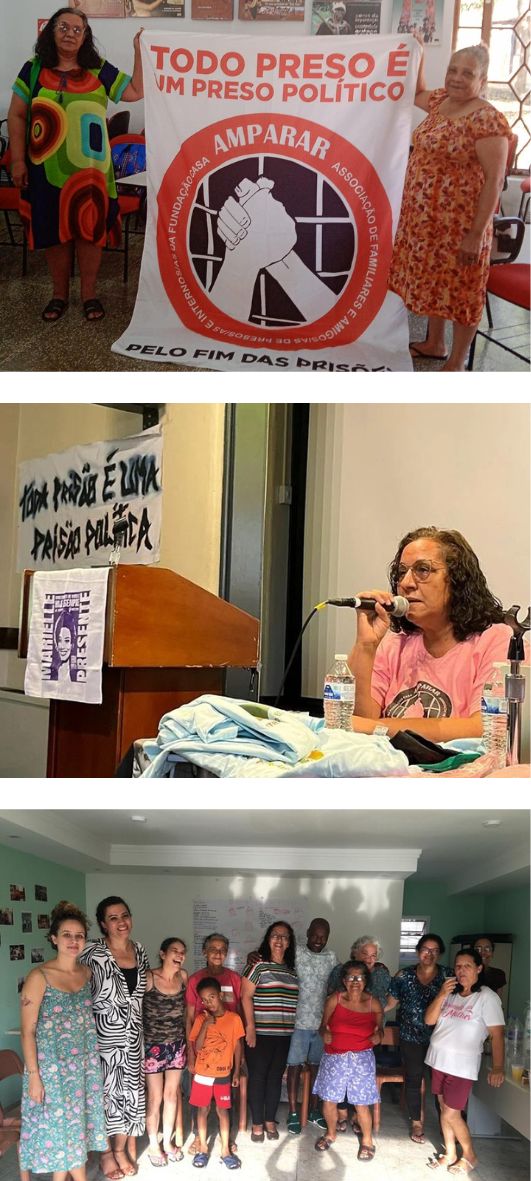Stories of Change

Photo Credit: AMPARAR
From Adversity to Advocacy: Railda’s Fight for Families Affected by Incarceration
“When a person commits a crime, a double sentence is paid. The person goes to jail and serves his sentence, but the other sentence is the one that his children and family members who are left suffering outside also pay. Then, when he comes out, the social stigma follows. And that sentence is perpetual.”
For more than 40 years, Railda lived a tranquil life on the outskirts of São Paulo, Brazil before her life dramatically changed overnight when her son was arrested and Railda found herself in a terrifying position for any parent: concerned for their child’s safety and protection.
Then, when Railda first visited her son in prison, she noticed bruises on his body and knew immediately that she needed to start fighting to assert her rights and the rights of her child.
“That’s where my whole process began. At that moment, I didn’t understand anything,” Railda said. “I began to talk to other families, to distribute handwritten papers in the prison lines with my information, so that other women and relatives would come into contact with me. We needed to change that whole reality and organize ourselves.”
Under Railda’s leadership, AMPARAR was born. Since 2004, AMPARAR has provided legal and social support to families of people deprived of liberty, walking alongside them during this process and all the uncertainty that comes with incarceration.
“They are people who are invisible to the public power and who do not receive any type of help,” says Railda. The organization has also provided her with psychosocial support and has continued to accompany her when she visits her son in prison. “It’s difficult for me too. Sometimes I think that I have no more strength, but a new case arrives, and I begin to provide support, and that even helps me get out of my own problem. That’s what my life is, being on my cell phone at all times to accompany the families.”
Since its founding, AMPARAR joined the International Network of Women’s Families of Persons Deprived of Liberty (RIMUF), which was founded in 2021 with support from CWS. Now, RIMUF has developed into a regional resource for issues related to gender justice and the rights of individuals who have been incarcerated.
“When you participate in these networks, you begin to have another vision, because you understand that these problems do not exist only in your country and you understand that the issue of incarceration is global. It is very important to be able to listen to and understand other perspectives regarding the topic,” she said.
Railda’s story is a testimony to the resilience and dedication of a mother who transformed adversity into a force to change the reality of families affected by prison in Brazil. At CWS, we are proud to accompany organizations like AMPARAR, led by women who teach us, inspire us and lead actions to generate positive changes in society.
CWS supports the work of Rimuf, the International Network of Women’s Families of Persons Deprived of Liberty. To learn more about the work of CWS in Latin America and the Caribbean, click here.
